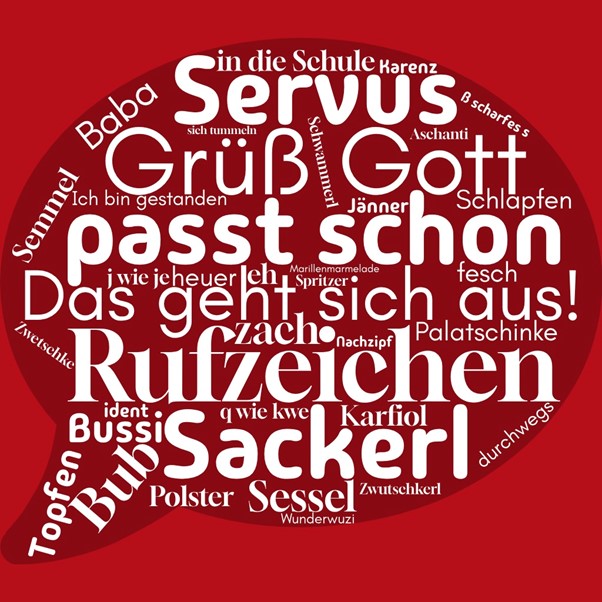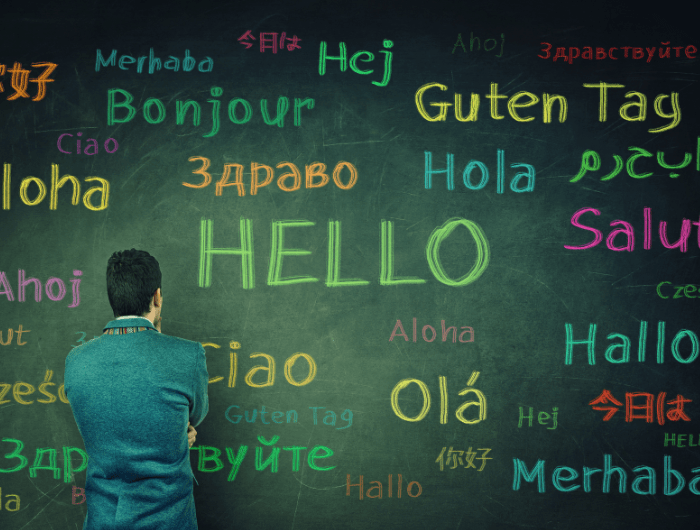Current Projects
Nowadays, social media is an integral part of our everyday lives with almost half of the world population being active on social media networks. There is a plethora of social media platforms and communication tools available by now which are not only used in the private domain, but also increasingly within educational settings. Due to the transition to online teaching because of the coronavirus, the question of how to bridge the gap between using such platforms and communication tools in private life and using them in teaching is more topical than ever. Especially in the field of language teaching and language learning, this global network can have positive effects and the use of social media can be beneficial. This project aims to determine how social media can be implemented effectively in language teaching. Firstly, the status quo at treffpunkt sprachen will be assessed by conducting a survey among course participants and by interviewing language teachers. For this purpose, the first step will be to develop and evaluate questionnaires for language learners, in order to examine which social media platforms and communication tools they use in their private lives as well as in educational settings.
Afterwards, language teachers will be interviewed to assess the use of social media in teaching and their personal evaluation of its effectiveness. While collecting this data, it will be analyzed which social media platforms are most suitable to expand the range of vocabulary, to improve grammar skills, pronunciation, written and oral expression and to engage in intercultural communication. Additionally, it will be examined which social media platforms and communication tools are most suitable for which phases of language education.
Research: Beatrice Maierhofer
Based on the module Language Learning with Adults, which has been offered for ten years now by treffpunkt sprachen, it is the aim of this didactic project to develop a teaching competence model for university language teaching. The central research question is: Which teaching competences are necessary in university language teaching, in order to provide high-quality language education within the context of today’s learning-based society? The theoretical basis for this project is composed of aspects of foreign language didactics and adult education, constructivist language didactics, quality criteria for teaching and established competence models in higher education didactics.
Drawing on data collected from the past academic years of Language Learning with Adults essential areas of competence will be identified which shall result in a TeachingCompetenceModel. This model shall illustrate the current demand of competences, professionalize the respective occupation and contribute to the quality assurance in the field of university language teaching.
Research: Christian Hofer-Tomberger, Anneliese Rieger-Roschitz

L1 Specific Grammar Comprehension in German as a Foreign Language (DaF) Classes – A Guideline-based Conceptual Framework for DaF Instructors, with a Focus on the Languages Arabic, Persian, Turkish and Ukrainian
Languages distinguish themselves in many respects. Especially grammatical phenomena can be processed differently in the world’s most multifaceted languages. German for example has three genders: masculine, feminine and neuter. In many languages however, there is only little or no distinction between genders. Those differences illustrate difficulties and problems learners are confronted with, when learning a second language; in this case German. Aim of this research project is to educate German as a foreign language instructors on the differences of both their students’ L1 and their L2, German. Thus, facilitating effective grammar comprehension in German as a foreign language classes. Instructors will further be equipped with an insight into their students’ previously acquired German language skills and gain a wider understanding of the complexity of grammar structures.
As a first step typical identifiers, differences and commonalities of the languages will be identified. Qualitative interviews with instructors and native speakers of the languages Arabic, Persian, Turkish and Ukrainian will be conducted and will provide a deeper insight into the applied research question. The aim of this project is to create a guideline for DaF instructors, in which grammatical structures (Level A1- A2 according to GERS) of the above-mentioned languages are put into relation with the German grammar system. The languages’ communalities and differences will be schematically portrayed and illustrated with examples.
Research: Antonia Gösweiner
The context of foreign language learning has changed significantly in recent decades. Due to increased mobility, globalization and advancing technologies, people around the world are interconnected and often surrounded by multiple languages. In addition to English, people often learn two or three languages in the school context, leading to university students who already have a broad individual language repertoire and thus become multilingual learners. Didactic approaches based on language-reflective and language-comparative methods are summarized under the term multilingualism didactics – learners are encouraged to consciously and actively draw on their existing language knowledge and to work out connections or parallels between linguistic concepts in order to make the learning process more effective and to promote sustainable learning success. In the context of this research project, multilingual didactic elements will be developed and implemented in the teaching of selected language courses at treffpunkt sprachen. First, current theoretical assumptions and discussions on this topic will be examined and verified by means of a survey among students.
Based on these results, multilingual didactic elements will be developed and tested in selected language courses. Whether and to what extent the developed components help learners to activate already existing language skills will be investigated by analyzing the perception of these components. The aim of this project is to determine, through surveys, whether theoretical assumptions within the field of multilingual didactics are reflected in practice and which of the theoretical concepts are transferable to practice. Based on the results, teaching materials for the implementation of multilingual didactic approaches will be developed.
Research: Sarah Jud

Leadership in a Virtual and Intercultural Context – Possibilities and Challenges for Austrian University Language Centers
Due to its methodological-didactic nature, the COVID-19 pandemic not only brought up challenges in adjusting to distance teaching but also influenced the leadership of Austrian university language centers. Within a short timeframe, well-established leadership practices, collaborations and central communication strategies had to be adapted to suit intercultural teams, including diverse lecturers, to best support and lead from a distance. In the winter semester 2021/2022, a short phase of in-person teaching was followed once again by a transition to distance teaching. On an organizational level, this required a high level of flexibility, adaptability and empathy towards team members and external teachers, but also a different understanding of each of the tasks and roles. Therefore, this project aims to investigate the opportunities and challenges of the members of the organizational and intercultural teams at Austria’s university language centers and how these COVID-19 related circumstances have influenced the leaders’ management behavior. Thus, the current state of the discussion on virtual and intercultural leadership will be explained firstly.
In this context, which of the theoretical findings are transferable to everyday leadership at university language centers will also be reviewed. Secondly, guided interviews with leaders of Austrian university language centers will be conducted. A focus will be put on what kind of influence virtual communication has on the management style of individual language centers. Thirdly, this project will research on the challenges virtual communication brought during the adjustment to distance-teaching and how center leadership managed to keep to a sense of “we”, as well as motivate and trust team members. Additionally, the essential factors that are used to lead international teams from afar will be analyzed, as well as how constructive conflict management can be facilitated. The aim is to show how the support of center leadership can be improved in a virtual and hybrid context. Based on acquired insight, training possibilities for people in leading roles will be determined and documented in writing.
Research: Serena Comoglio
Equality in Language Learning: Accessible Language Teaching for Participants with Visual Impairments at University Language Centers in Austria

Life-long learning, continuing education and investing time in developing one’s skills seem to be crucial to stay competitive in today’s job market. Seminars, webinars, workshops, or language courses – there is a lot on offer. However, what is the situation like when a person with visual impairments wants to improve their language skills? Are the classes, coursebooks and teaching materials accessible or is the access made more difficult or even impossible? This project aims to investigate the current situation and accessibility at Austria’s university language centers. It will be examined whether and how teachers are prepared for language teaching with visually impaired course participants and whether the universities offer training opportunities for teachers and support for creating accessible course materials. This will point to areas in need of improvement and action. In order to consider the perspectives of all parties involved, interviews will be conducted in three phases: First, the heads of Austrian university language centers will be interviewed, followed by the language teachers of these centers and finally course participants with visual impairments.
Additionally, a survey among course participants with and without visual impairments will show, how they self-evaluate their language skills in order to identify possible differences. The collected data is an important indicator for unlimited or limited access to education. The project results serve as the basis for developing guidelines for accessible foreign language teaching for people with visual impairments, which aim to contribute to more inclusive language teaching at Austria’s university language centers. Furthermore, this research is the starting point for a follow-up project, providing seminars on the topic of “Accessible Language Teaching for Learners with Visual Impairments” to (future) teachers in adult education.
Research: Nina Zavašnik
Within the last year, the corona crisis not only caused changes in the private and public structures of the society, but it also influenced university teaching and learning. Distance learning was established as a common incentive at universities and thus, language teaching was adapted to a digital mode of teaching. After almost three semesters of distance learning, universities and language schools are attempting to, once again, offer in-person classes. Despite everything, university institutions would like to maintain their previously acquired digital competences. Therefore, this project investigates how online-tools can be implemented into in-person language teaching to add didactic value. This project aims at maintaining and further developing the digital competency skills of both instructors and students in in-person language learning. The underlying objective is to preserve the previously acquired skills and create a methodologically multi-faceted in-person language learning environment.
Part of this research project includes a survey which will discuss those online-tools that have proven to be useful and practicable by the instructors. Then three tools, that reflect their meaningfulness in university’s in-person language teaching setting, will be defined. For each of the three online-tools, a teaching scheme and teacher manual will be drafted to later be implemented into language teaching. In the project’s final stage, these teaching schemes will be tested in multiple language classroom settings, to assess their didactic and methodologically added value.
Research: Teresa Eibl-Steiner
The project Interactive Language Learning Methods acts as extendable methods exchange for language teachers to choose from a pool of available interactive and communicative language teaching methods. Methods provided online can be chosen and integrated into their respective lessons. Every teacher has the opportunity to offer their own resources in exchange for the use of others. The described methods are cross-linguistic and thus reach teachers of different languages. Some examples may come from Spanish class, but can be used for Russian lessons. Thus, interactive language learning methods can be seen as a support in the design and didactic conception of communicative language teaching.
A further goal of this project is to support cooperative language teaching through communicative and interactive exercises and to view language as a form of joint human interaction. The applied methods shall ensure learner-centers language teaching that is appropriate to learning needs.
Research: teaching staff at treffpunkt sprachen

Intergenerational Language Learning ‒ How Generations Learn from and with each other in Foreign Language Courses
Since the concept of lifelong learning became popular at the beginning of the 21st century, numerous possibilities for further education have been established in the sector of adult education. Adults from different backgrounds, such as origin, age, generation, previous knowledge and experience, do not only have the opportunity to learn something new together but also to learn with, about and from each other intergenerationally due to their age differences. This research project aims to observe these intergenerational learning processes more closely. The opportunities and challenges, which are presented to learners and teachers by intergenerational language learning, are examined by observing classes and conducting interviews. The observations show how the social factor of intergenerationality is implemented in the course design at treffpunkt sprachen and which intergenerational teaching methods are used.
During interviews, teachers and learners elaborate on the positive aspects of multi-generational language courses. Additionally, the age heterogeneity of language course participants may pose challenges to learners as well as teachers, which will be discussed in more detail during the interviews as well. Based on the results of this research project, a collection of targeted methodological and didactic recommendations will be compiled, in order to create ideal conditions for learning and teaching in intergenerational language education. The resulting didactic handbook offers a variety of methods for intergenerational language teaching at treffpunkt sprachen and aims to contribute to a varied and effective intergenerational language education for all age groups.
Research: Sarah Bindar
treffpunkt sprachen has a multilevel advising and coaching system for lecturers with the objective of offering support for professional as well as personality development. Learning and support take place on non-formal, informal and formal levels. In addition to conversations and advising sessions that take place with a teaching coach, there is an additional self-regulated possibility for learning and development on a non-formal level: peer observation. It has been proven that direct and mutual observation of lessons offers an enormous opportunity for learning. In the peer observation that has been used successfully at treffpunkt sprachen for several years already, two teachers get together and observe each other's lessons, reflecting on and developing them over the course of a series of discussions. The topic of the initial meeting is the sequence of the observation (length, extent, collegial and non-judgemental atmosphere, observation criteria or special criteria that have been agreed upon; depending on the focus and interest, these criteria can regard the methodological area of influence or teaching performance and the teacher's personality; for the latter two criteria, peer observation is offered in another foreign language so as to shift the focus away from imparting the language). It is generally possible to define the observation criteria broadly or to focus on several aspects.
Once all observation (which can last anywhere from one lesson to a month) has been completed, a meeting is held in a protective environment in which experiences, individual strengths and possibilities for development indicated on the observation forms and in personal notes are discussed. The conclusion of peer observation is confirmed with signatures and can be seen as a continuing education program. The feedback from teachers has been consistently positive: they have expanded their repertoire of methods, become acquainted with new styles of teaching, observed how to deal with groups and students, seen their own problems through the eyes of an outsider and much more. Moreover, they get to know each other and develop friendships. The project aims to promote peer observation and advising. The learning outcomes of this method of observation is examined using different methods of investigation (questionnaires and interviews), In addition, it is explored to what extent peer support influences further professional activity. New and innovative team-oriented systems of support should be developed from the results.
Research: Christian Hofer-Tomberger
Shared values are essential for living together in a community. They are key to cultural understanding and therefore an integral part of forming and recognizing cultural identities. GFL courses do not only aim to teach language but also to address and pass on such values. In the course of this project, it will be assessed how these values are conveyed in GFL courses of the language center treffpunkt sprachen. First, the current discussion on concepts of culture and values will be reviewed before expanding on theories on values education. In doing so, these values will be embedded in their historical, social and cultural contexts and the process and models of teaching them will be explained. Next, a variety of GFL courses will be observed in order to analyze and evaluate the behavior, interactions and attitudes of students and teachers. Then, by conducting a qualitative and quantitative questionnaire survey among students, it will be examined which core values they deem relevant in respect to values education in GFL courses.
Finally, the GFL teachers will be interviewed to assess, whether the didactic and methodological structures of their courses correspond to the scientific theories on teaching culture and values. By observing GFL courses, analyzing the data collected via the survey among students and the interviews with teachers, this project aims to demonstrate which theoretical concepts of teaching culture and values can be put into practice. Based on these results, teaching materials for GFL courses ranging from language levels A1 to C1 will be created to facilitate cultural and values education.
Research: Stefanie Faustmann
Long-term Stay in Austria as the Cause for Insecurities in One’s Own Native Language – A Challenge for Native Speakers as Language Teachers?

Many foreign language teachers worldwide live and work abroad. This is also true for teachers at treffpunkt sprachen, who come from different countries of origin and have been living in Austria for years or even decades while teaching their native languages as foreign languages. Because of their permanent stay in German-speaking regions, these teachers are massively influenced by the language spoken in their environment and by the necessity of using this language themselves every day. This results in a multilingual living situation with significantly less contact to their native language than before, ultimately leading to inevitable changes in their language use and competence. This project examines, whether lecturers at treffpunkt sprachen, who permanently live in Austria, feel affected by the changes and insecurities in their native language, while teaching it to their students. By developing a questionnaire, it will be assessed if and which difficulties they are experiencing in their native language, such as changes in intonation, needing more time to find the right words, insecurities concerning correct spelling, getting used to frequent mistakes made by the learners, etc. Putting their job into focus, it will be examined, whether the language teachers perceive these phenomena as challenges in their everyday professional life–during their lessons, preparations or follow-ups.
The results of the survey serve as the basis for interviews with the teachers. In a safe space, they are given the opportunity to explain their insecurities in their native language and the influencing factors in greater detail. This project aims to encourage teachers to personally reflect on their language biography and raises the awareness for linguistic processes of change. Based on the results, guidelines for language teachers will be developed that include measures for maintaining high native language competence. Thereby, this project contributes to the quality assurance of language teaching in higher education.
Research methods: literature research, questionnaire survey, interviews, analysis of the collected data
Research: Yael Rosenmann

Possibilities and Limitations of Implementing Artificial Intelligence in Foreign Language Teaching. A case study in the field of Japanese as a Foreign Language
The ongoing growth of artificial intelligence systems is increasingly being considered for implementation in education as well. Artificial Intelligence (AI) offers the potential for personalized teaching and learning support through technologies such as natural language processing, speech recognition and machine learning. Especially in foreign language courses at university, offered as free electives, there is often limited class time available for learning the target language. As a result, addressing individual learners' questions or errors, particularly in text interpretation and composition, can be difficult. With increasing levels of proficiency, foreign language instructors may face the issue of limited class time due to the increasing complexity of learners’ questions and errors. Nevertheless, this provides an opportunity to employ artificial intelligence as a customized teaching assistant to optimize scarce lesson time and improve learners’ overall educational experience.
The purpose of this study is to explore the potential and constraints of integrating artificial intelligence (AI) in the domain of foreign language teaching. Specifically, this study investigates the impact of using AI on the educational achievements and motivation of European students learning Japanese as a foreign language. Further, the project aims to clarify the usefulness of chatbots, such as Chat GPT, as a complementary tool in foreign language teaching and evaluate the degree to which text-based AI systems can improve the learning experience.
Research: Kaori Sohar-Yasuda
Austrian German: Teaching Practice and Image. The influence of pluricentric GFL teaching on language attitudes

Austrian Standard German receives less recognition than German Standard German both in Austria and abroad. The reasons for this are complex and are based to a large extent on the language policy practiced. Language centers such as treffpunkt sprachen play a key role in the communication of linguistic and cultural assets that are expressed in Austrian German. The research objective of this project is to raise awareness of the pluricentricity of the German language among GFL learners and the associated recognition of Austrian Standard German as a standard variety of equal status. This goal is to be achieved through teaching practice using a handbook created especially for this project. The handbook “Österreichisches Deutsch im DaF-Unterricht (Austrian German in GFL lessons)” is designed for teaching German at all levels according to GeR (A1-C2). It contains numerous language examples for each of the four main language areas—grammar, lexis, phonetics and pragmatics—which are accompanied by general explanations of the characteristics of Austrian Standard German and practical examples for teaching GFL.
The handbook will subsequently be used and tested in GFL lessons at treffpunkt sprachen. The expected image shift of Austrian Standard German as a consequence of implementing the didactic concept will be documented using evaluation forms. The evaluation of the results will lead to a final research report. The didactic concept and the handbook are intended to serve as a model for GFL teachers in Austria and abroad, regardless of the coursebook in use and the teaching location.
Research: Anneliese Rieger-Roschitz
This project examines how international exchange students who attend a language course at treffpunkt sprachen – Centre for Language, Plurilingualism and Didactics experience their semester abroad in Graz/Austria. The project's aim is to survey students' expectations and needs, motivation and high and low points in short-term studies abroad (one to a maximum of two semesters). Central intercultural sources of conflict in university communication will be examined, such as the organization of studies (orientation at the university), teaching methods and learning styles (knowledge transfer and acquisition, academic culture, scientific culture), performance requirements (academic expectations and performance), communication and interaction (standards of conduct, role expectations). In the first — retrospective — phase, international students will be asked questions on a macro level during focus groups interviews, for example how they have experienced their first months as students in Graz.
The same research method will be applied to ask language teachers and other people affiliated with the university that are involved with the target group exchange students about their experiences. In the second project phase, long-term studies of exchange students will be carried out on a micro level. These studies will involve ongoing individual phases of reflection facilitated by regular surveys by project staff, diary entries and blogs, and support to the participating students.
Research: Eva Seidl, Birgit Simschitz







